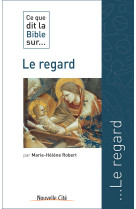Vigoureux appel à l'unité entre juifs et gentils comme condition à la mission chrétienne, la " Lettre aux Romains " de Paul est à même de fonder de nouvelles relations entre juifs et chrétiens. L'analyse exégétique de l'ensemble de la " Lettre aux Romains " permet à l'auteur de montrer que pour Paul, apôtre des gentils, Israël a toujours un rôle clef. Paul a-t-il été cependant entendu dans l'histoire ? Le rapport à la tradition pesant d'un grand poids dans le dialogue judéo-chrétien, M.-H. Robert explore la réception diversifiée de Rm 9-;11 au fil des siècles et dans différents contextes confessionnels. Entre ignorance envers Israël, déni, refoulement, intérêt, bienveillance, débats, engouements, la gamme est large. Au XXe siècle, les Églises ont promu un nouveau regard sur Israël, mais dans les discours et les priorités, la mission se passe du rapport à Israël. Pourtant, bénéficiant de l'appel sans repentance de Dieu (Rm 11,29), Israël a une mission particulière dans le monde, que l'Église rejoint, dans le cadre d'une mission commune, par sa propre mission. Fruit d'une thèse novatrice, le livre ouvre des perspectives très stimulantes pour la missiologie. -- A spirited call for unity between Jews and gentiles as a condition of the Christian mission, Paul's "Epistle to the Romans' is capable of laying the foundations for new relations between Jews and Christians. The exegetic analysis of the Letter to the Romans in its entirety has permitted the author to show that for Paul, apostle of the gentiles, Israel always played a key role. But can we say that history has given Paul a hearing? Tradition weighs down heavily on the Judeo-Christian dialogue. M.-H. Robert explores the diverse receptions of Rm 9-;11 throughout the centuries and by different confessions: the reactions to Israel range from ignorance, denial, repression, interest, goodwill and debate to enthusiasm. In the 20th century, Churches advocated a new vision of Israel, but in their teaching and their priorities, the relation to Israel was left out of their mission. However, benefitting from the irrevocability of God's call (Romans 11, 29), Israel has a specific mission in the world, shared by the Church in the context of a common mission. The fruit of an innovating idea, this book opens up fascinating perspectives for missiology.


